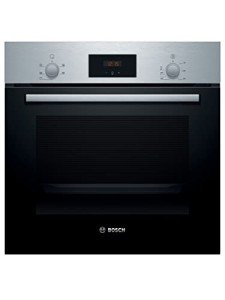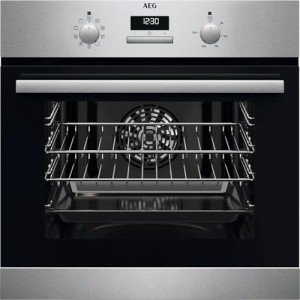cheapest-fan-oven4816
cheapest-fan-oven4816
The 10 Most Terrifying Things About Single Electric Ovens
The Comprehensive Guide to Single Electric Ovens: Features, Benefits, and Buying Tips
In today’s busy world, cooking at home is ending up being increasingly popular as people discover happiness in preparing meals that not only please their cravings however also permit them to reveal their creativity. At the heart of numerous cooking areas is the single electric oven, a necessary device that offers convenience and dependability. This article checks out the different aspects of single electric ovens, including their features, advantages, and pointers for choosing the ideal one. Furthermore, it will deal with regularly asked concerns to supply a much deeper understanding of this important kitchen tool.
What is a Single Electric Oven?
A single electric oven is a standalone or built-in device that operates utilizing electrical power as its primary heat source. Unlike double ovens, which supply 2 separate cooking compartments, a single electric oven provides one cooking cavity, making it ideal for smaller sized spaces or for those who do not require several cooking alternatives at the same time.

Features of Single Electric Ovens
Single electric ovens come with several features that improve their performance and use. Some of the common functions include:
| Feature | Description |
|---|---|
| Convection Cooking | Uses a fan to circulate hot air for even cooking. |
| Self-Cleaning | Immediately cleans up the interior by raising the temperature level. |
| Digital Controls | User friendly touch controls for precise temperature settings. |
| Multiple Cooking Modes | Alternatives like baking, broiling, roasting, and more. |
| Energy-Efficient | Normally more energy-efficient than gas models. |
| Timer Functions | Built-in timers for better cooking management. |
| Smart Features | Wi-Fi connection for remote control by means of mobile phone apps. |
Advantages of Using a Single Electric Oven
-
Constant Cooking Temperature: Electric ovens provide a steady temperature, ensuring equally cooked food without the hotspots frequently found in gas ovens.
-
Easy to Clean: Many electric ovens come with self-cleaning functions that get rid of the requirement for scrubbing and chemical cleaners.
-
Greater Baking Capacity: Single electric ovens usually use more baking area than their range counterparts, making them ideal for baking large items like roasts or casseroles.
-
Security: Electric ovens eliminate the risks related to gas leaks and deal functions like automated shut-off that boost security.
-
Versatile Cooking Options: With various cooking modes, electric ovens can easily handle a broad array of dishes, from baked items to roasted meats.
Factors to consider When Buying a Single Electric Oven
Choosing the best single electric oven can significantly impact your cooking experience. Here are some aspects to consider:
-
Size and Space: Measure your kitchen space to ensure the oven will fit completely. A lot of single ovens have basic dimensions, but it’s important to confirm.
-
Kind of Installation: Determine if you want a freestanding system or a built-in model. Built-in models normally integrate much better with cabinets.
-
Power Requirements: Ensure that your kitchen’s electrical system can support the oven’s power requirements, which generally range between 240 to 280 volts.
-
Cost and Brand Reputation: Research different brand names and check out consumer reviews, thinking about both initial costs and long-lasting dependability.
-
Energy Efficiency: Look for models that feature energy-saving functions to lessen electrical power expenses.
-
Guarantee and Support: Choose a brand name that offers good customer support and warranty coverage to make sure support in case of future repairs.
Popular Brands of Single Electric Ovens
- Bosch: Known for their reliability and smooth designs.
- GE Appliances: Offers a range of affordable and feature-rich designs.
- Whirlpool: Famous for their resilient and effective ovens.
- Samsung: Incorporates wise technology into their home appliances.
- Maytag: Renowned for high-performance ovens created for heavy use.
Frequently Asked Questions (FAQs)
1. What is the average life-span of a single electric oven?
The average life expectancy of a single electric oven is around 10 to 15 years, depending upon the brand, usage, and maintenance. Regular cleansing and timely repair work can extend its life-span.
2. Do single electric ovens take in a great deal of electricity?
Single electric ovens can be energy-efficient, depending upon the model. Many modern ovens come with energy-saving features that can assist lessen electricity use.
3. Can I set up a single electric oven myself?
While it is possible to set up a single electric oven yourself, it is extremely advised to work with a professional electrician, especially when it involves electrical connections.
4. How much do single electric ovens cost?
The expense of single electric ovens can differ commonly. Typically, you can expect to invest in between ₤ 500 to ₤ 2,000, depending on the brand name, features, and innovation included.
5. Are single electric ovens much better than gas ovens?
This can depend on specific preferences. Electric ovens typically offer more constant temperature level control and are easier to clean up, while gas ovens tend to warm up faster and use better temperature control for particular cooking methods.
Single electric ovens work as a foundation in modern kitchen areas, offering dependable efficiency and a variety of features to enhance the cooking experience. Their capability to cook food equally, integrated with easy-to-clean functionalities, make them a preferred option for numerous home cooks. By understanding their functions, benefits, and what to consider before acquiring, consumers can make informed decisions that line up with their cooking requirements and kitchen space. In the end, picking a single electric oven may extremely well raise the happiness of cooking at home, encouraging more people to check out the cooking arts.




